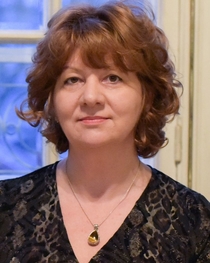High Reporting Rate Measurements for Smart[er] Grids

Michaela Albu
Resumen
Modern control algorithms in the emerging power systems process information delivered mainly by distributed, synchronized measurement systems, and available in data streams with different reporting rates. Multiple measurement approaches are used: on one side, the existing time-aggregation of measurements are offered by currently deployed IEDs (SCADA framework), including smart meters and other emerging units; on the other side, the high-resolution waveform-based monitoring devices like phasor measurement units (PMUs) use high reporting rates (50 frames per second or higher) and can include fault-recorder functionality.
There are several applications where synchronized data received with a high reporting rate has to be used together with aggregated data from measurement equipment having a lower reporting rate (complying with power quality data aggregation standards) and the accompanying question is how adequate are the energy transfer models in such cases. For example, state estimators need both types of measurements: the so-called “classical” one, adapted for a de facto steady-state paradigm of relevant quantities, and the “modern” one, i.e. with fewer embedded assumptions on the variability of same quantities. Another example is given by emerging active distribution grids operation, which assumes higher variability of the energy transfer and consequently, a new model approximation for its characteristic quantities (voltages, currents) is needed. Such a model is required not only in order to be able to correctly design future measurement systems but also for better assessing the quality of existing “classical” measurements, still in use for power quality improvement, voltage control, frequency control, network parameters’ estimation, etc.
The main constraint so far is put by the existing standards where several aggregation algorithms are recommended, with a specific focus on the information compression. The further processing of RMS values (already the output of a filtering algorithm) results in significant signal distortion.
Presently there is a gap between (i) the level of approximation used for modeling the current and voltage waveforms which are implicitly assumed by most of the measurement devices deployed in power systems and (ii) the capabilities and functionalities exhibited by the high fidelity, high accuracy and a high number of potential reporting rates of the newly deployed synchronized measurement units.
The talk will address:
o The measurement paradigm in power systems;
System inertia, real-time and steady-state
Instrument transformers; limited knowledge on the infrastructure
PQ, SCADA, and PMUs
Power system state estimation; WAMCS
IEDs, PMUs, microPMUs
Time-stamped versus synchronized measurements
o Measurement channel quality and models for energy transfer
Voltage and frequency variability; rate of change of frequency
The steady-state signal and rapid voltage changes (RVC); RMS-values reported with 100 frames/s;
Measurement data aggregation; filtering properties
Time- aggregation algorithms in the PQ framework
Statistical approaches;
o Applications and challenges
Communication channel requirements; delay assessment in WAMCS
Smart metering with high reporting rate (1s)
The presentation provides an overview of these techniques, with examples from worldwide measurement solutions for smart grids deployment.
Biografía
Mihaela M. Albu (M’96, SM’07) is from Craiova, Romania. She graduated from “Politehnica” University of Bucharest (UPB) in 1987 and holds the Ph.D. degree (1998) from the same university. Since 2002 she is a Professor of Electrical Engineering at UPB. Teaching activity presently counts: Advanced Topics in Instrumentation and Measurement (Master); Smart Distribution Grids (Master); Signal Processing (Bachelor) at the Dept. of El. Engineering of UPB; and «Elektrische Meßtechnik”; “Sensoren» at the German Department of UPB.
Her research interests include wide area measurement systems as well as synchronized measurements and evaluation of the associated uncertainty considered in the state estimation algorithms; smart energy grids including optimal use of renewables and real time control; smart metering technologies; DC grids as an innovative solution for future intelligent grids, for which a demonstration platform was realized in a fully equipped laboratory fed from a DC bus at 230 V rated voltage and a proposal of power quality assessment in DC grids; power quality and signal processing for power quality assessment, nonlinear phenomena in power systems; distributed and computer-controlled measurement systems, IEEE and IEC standards in power, power system protection, virtual and Internet-based laboratories. She is the founder of an interdisciplinary group MicroDERLab at UPB, and coordinates several research teams working on projects funded by national and international grants. Dr. Albu was spending a leave at Arizona State University as a Fulbright Fellow 2002 – 2003 and in 2010. Her work includes coordination of a monograph (on measurements in power systems ), 7 Book chapters; 21 Journal Publications; more than 70 papers published in International Conference Proceedings; 40 presentations, invited papers and other non-refereed publications; 13 Laboratory notes, and more than 50 Technical Reports (recently on smart grids topics);
Since 2009 she is Vice-Chair of the Intellicis -Working Group 2: Reliable management and control of electric power systems, 2009-2013. The professional service is highlighted by active membership in IEEE – IMS, CIGRE, VDE, and IRE (Romanian Power Engineers Society).
As an IEEE member, she volunteers for the Instrumentation and Measurement Society since 2009, while she became part of the AdCom. She is also involved in the IEEE local activities –as a vice-chair of the PES-Romania Chapter and contributes to the dialogue between the Romanian electrical engineering community and the IEEE. Distinguished Lecturer (2020 – 2022); Chapter Chair|| I&M AdCom (2013-2016, 2009-2012)|| VP Membership (2010-2011)|| VP Technical & Standards Activities (2012-2013)|| IEEE Region 8 Chapter Coordination Subcommittee (2011)|| Smart Grid Initiative (2015-2017)|| Education Committee/Faculty Course Development Award Selection Committee (2016-2017)|| Distinguished Lecturer (2016 – 2019).

